
Melissa B. Miller, PhD and Robin Patel, MD sat down with Contagion® to discuss how they believe that molecular-based point of care laboratory testing will revolutionize healthcare.

Melissa B. Miller, PhD and Robin Patel, MD sat down with Contagion® to discuss how they believe that molecular-based point of care laboratory testing will revolutionize healthcare.

Is it time to reassess prescribing practices on beta-lactams when it comes to patients with penicillin allergies? The answer is an unquestionable, “Yes!” according to Meghan Jeffres, PharmD.
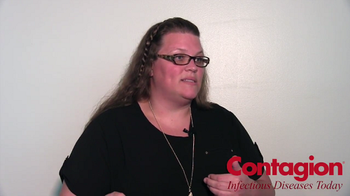
Meghan Jeffres, PharmD, explains why practitioners need to think about the rate of cross-reactivity between antibiotic penicillin and specific cephalosporins.

In New Orleans, The American Society of Microbiology 2017 annual meeting started with 3 distinct speakers.

Conan MacDougall, PharmD, discusses how behavioral change interventions can positively impact the antibiotic prescribing environment.

Khalid Eljaaly, PharmD, MS, CAPPS, BCPS, explains his team’s findings on the link between carbapenems and superinfections & Clostridium difficile.

Snigdha Vallabhaneni, MD, MPH, Medical Epidemiologist, Mycotic Diseases Branch at the Centers for Disease Control and Prevention, explains CDC’s recommendations for disinfecting hospital surfaces from Candida auris.
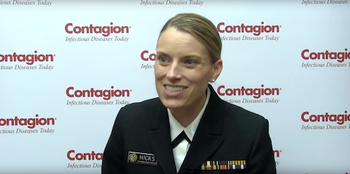
Lauri A. Hicks, DO, discusses keys to reducing antibiotic resistance.
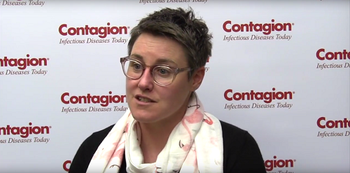
Nicola Thompson, PhD, explains how her research can lead to initiatives that aim to result in a decline in the burden of infections in nursing homes.

Arjun Srinivasan, MD, explains the most important thing that individuals need to know regarding outbreaks.

Snigdha Vallabhaneni, MD, MPH, Medical Epidemiologist, Mycotic Diseases Branch at the Centers for Disease Control and Prevention, explains how the transmission of Candida auris differs from that of other Candida species.

Jean-Paul Gonzalez, MD, PhD, Deputy Director, Center of Excellence for Emerging and Zoonotic Animal Diseases (CEEZAD), Kansas State University, Adjunct Professor, Kansas State University, explains the importance of vector control in the fight against Zika.

Gonzalo Bearman, MD, MPH, professor of medicine, and hospital epidemiologist, Department of Internal Medicine and Infectious Diseases, Virginia Commonwealth University, explains how controlling antibiotic use can impact Clostridium difficile rates.
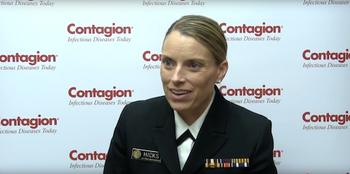
Lauri A. Hicks, DO, Director, Office of Antibiotic Stewardship, Centers for Disease Control and Prevention, discusses the importance of preserving the effectiveness of antibiotics.

Gonzalo Bearman, MD, MPH, professor of medicine, and hospital epidemiologist, Department of Internal Medicine and Infectious Diseases, Virginia Commonwealth University, discusses methods to disinfect hospital rooms so as to limit the transmission of healthcare-associated infections.
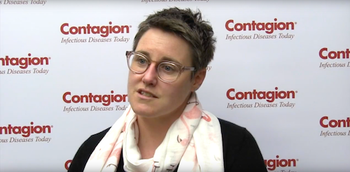
Nicola Thompson, PhD, Epidemiologist, Division of Healthcare Quality Promotion, Centers for Disease Control and Prevention (CDC), explains why research and surveillance of HAIs in US nursing homes has been limited.
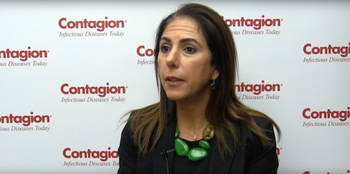
Lilian Abbo, MD, chief, infection prevention & control and antibiotic stewardship, Jackson Health System, associate professor of clinical medicine, Division of Infectious Diseases, Miller School of Medicine, University of Miami, explains how antibiotic stewardship efforts are different in the immunocompromised population.

Gonzalo Bearman, MD, MPH, professor of medicine, and hospital epidemiologist, Department of Internal Medicine and Infectious Diseases, Virginia Commonwealth University, discusses a cost-effective way to control Clostridium difficile in the hospital setting.
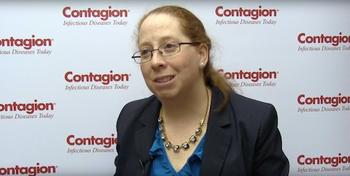
Belinda Ostrowsky, MD, MPH, Health Systems Director of Epidemiology, Antimicrobial Stewardship & Infection Prevention, Montefiore Medical Center, and Associate Professor of Clinical Medicine, Division of Infectious Diseases, Department of Medicine, Albert Einstein College of Medicine, explains how empiric treatment can lead to antibiotic overuse.
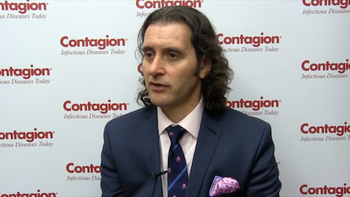
Gonzalo Bearman, MD, MPH, professor of medicine, and hospital epidemiologist, Department of Internal Medicine and Infectious Diseases, Virginia Commonwealth University, examines the importance of nurse-driven Clostridium difficile protocols.

Lauri A. Hicks, DO, Director, Office of Antibiotic Stewardship, Centers for Disease Control and Prevention, discusses new resources dentists can use for prescribing antibiotics prophylactically.
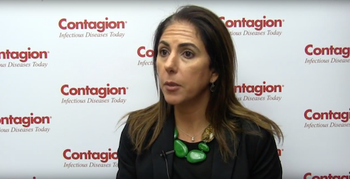
Lilian Abbo, MD, chief, infection prevention & control and antibiotic stewardship, Jackson Health System, associate professor of clinical medicine, Division of Infectious Diseases, Miller School of Medicine, University of Miami, discusses some of the limitations of rapid diagnostic testing.
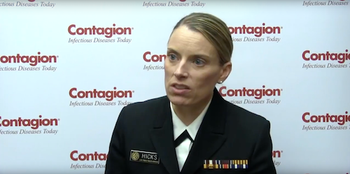
Lauri A. Hicks, DO, Director, Office of Antibiotic Stewardship, Centers for Disease Control and Prevention, discusses what we still don’t know about antibiotics.

Nicola Thompson, PhD, Epidemiologist, Division of Healthcare Quality Promotion, Centers for Disease Control and Prevention (CDC), explains that, in order to decrease the national prevalence of HAIs in the United States, we can’t just focus on acute care settings.
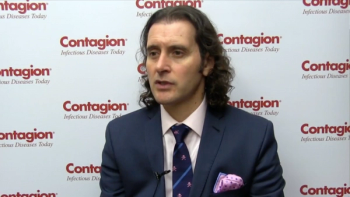
Gonzalo Bearman, MD, MPH, professor of medicine, and hospital epidemiologist, Department of Internal Medicine and Infectious Diseases, Virginia Commonwealth University, discusses some alternative approaches to contact precautions for patients with Clostridium difficile.

Matt Linam, MD, MS, Assistant Professor, Pediatric Infectious Diseases, University of Arkansas for Medical Sciences, stresses the importance of healthcare workers staying home when they’re ill.

Gonzalo Bearman, MD, MPH, professor of medicine, and hospital epidemiologist, Department of Internal Medicine and Infectious Diseases, Virginia Commonwealth University, explains how contact precautions can affect a patient’s wellbeing and quality of care.
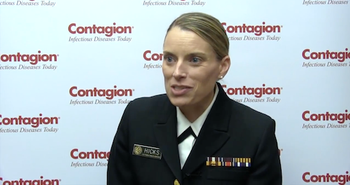
Lauri A. Hicks, DO, Director, Office of Antibiotic Stewardship, Centers for Disease Control and Prevention, explains the importance of identifying gaps in antibiotic stewardship.
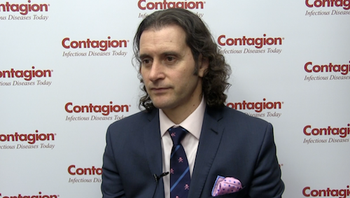
Gonzalo Bearman, MD, MPH, professor of medicine, and hospital epidemiologist, Department of Internal Medicine and Infectious Diseases, Virginia Commonwealth University, discusses contact precautions for patients with Clostridium difficile.

Jean-Paul Gonzalez, MD, PhD, Deputy Director, Center of Excellence for Emerging and Zoonotic Animal Diseases (CEEZAD), Kansas State University, Adjunct Professor, Kansas State University, discusses the parallels between past Ebola outbreaks, and how they can help us manage the current Zika pandemic.